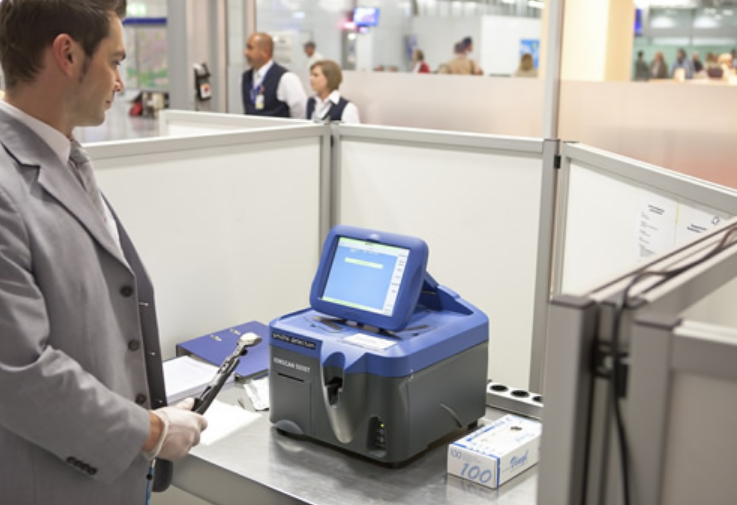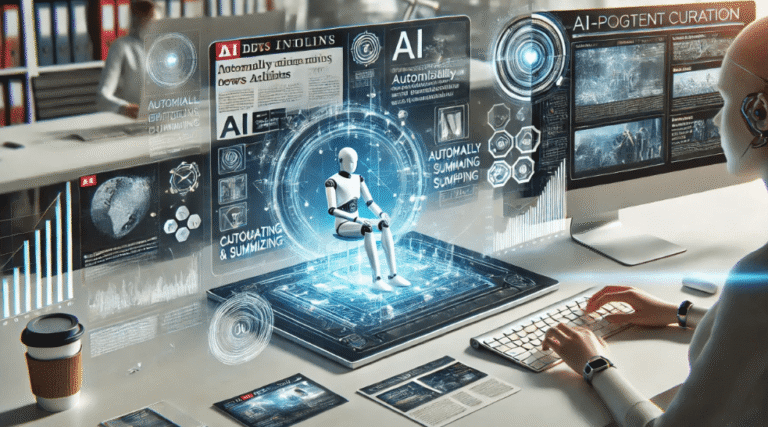Accelerating Smart Hiring with Next-Gen Interview as a Service Platforms
The recruitment landscape is undergoing a significant transformation. Traditional hiring methods, often bogged down by lengthy processes and inconsistent evaluations, are being replaced by more agile and technology-driven solutions. Among these, the rise of interview as a service platform stands out as a pivotal innovation that is reshaping how organizations approach candidate assessments.
These platforms offer a strategic blend of expert interviewers, AI-powered assessments, and structured evaluation frameworks, enabling companies to streamline their hiring processes, reduce time-to-hire, and enhance candidate quality. In an era where attracting top talent is crucial for business success, interview as a service platforms are becoming a key differentiator in recruitment strategies.
What is an Interview as a Service Platform?
An interview as a service platform is a cloud-based solution that facilitates the outsourcing of interviews to external experts and automated assessment tools. These platforms provide companies with access to professional interviewers, standardized evaluation rubrics, AI-driven analytics, and seamless integration with Applicant Tracking Systems (ATS).
From initial screening to in-depth technical and behavioral assessments, these platforms handle the entire interview lifecycle, ensuring that hiring decisions are data-driven, unbiased, and efficient.
Why Companies are Adopting Interview as a Service Platforms
Several factors are driving organizations across industries to adopt interview as a service platforms as part of their core recruitment infrastructure:
- Scalability in High-Volume Hiring: Companies can scale their interviewing capacity on-demand without overburdening internal HR or technical teams.
- Faster Time-to-Hire: With pre-vetted interviewers and automated scheduling, these platforms drastically reduce the hiring cycle time.
- Access to Domain Experts: Organizations get access to a global network of interviewers specialized in various technical and functional domains.
- Standardization of Evaluations: Structured interview frameworks ensure consistency and fairness across all candidate assessments.
- Enhancing Candidate Experience: A well-orchestrated and professional interview process reflects positively on employer branding.
Eliminating Biases in Interviewing
One of the most significant advantages of an interview as a service platform is its ability to eliminate biases in interviewing. Traditional interviews often suffer from unconscious biases, where candidates are judged based on factors unrelated to their actual skills or qualifications.
IaaS platforms combat this by deploying structured evaluation rubrics, standardized question sets, and blind assessments, ensuring that every candidate is assessed purely on merit. Additionally, AI-driven analytics monitor interviewer behaviors and provide feedback to maintain objectivity in evaluations.
Key Features of a Modern Interview as a Service Platform
1. On-Demand Interview Panels
Companies can access a pool of professional interviewers specialized in various domains like software development, data science, healthcare, finance, and more.
2. AI-Powered Assessments
AI algorithms analyze candidate responses, detect behavioral cues, and generate predictive performance insights to aid hiring decisions.
3. Automated Scheduling & Coordination
Seamless scheduling tools coordinate interview slots between candidates and interviewers, eliminating logistical headaches.
4. Real-Time Feedback & Reporting
Instant feedback mechanisms allow hiring teams to make quick and informed decisions.
5. ATS & HRIS Integration
Modern platforms offer integration with existing HR systems, ensuring a smooth and unified recruitment workflow.
See also: Top 20 FoodTech Software Development Companies in 2025
Top Industries Benefiting from Interview as a Service Platforms
While tech companies have been early adopters of interview as a service platforms, other industries are rapidly recognizing their value:
- Healthcare & Life Sciences
- Banking & Financial Services
- E-commerce & Retail
- Telecommunications
- Engineering & Manufacturing
Each sector faces unique hiring challenges that can be effectively addressed through tailored IaaS solutions.
Leading Companies Offering Interview as a Service Platforms
Several companies have emerged as leaders in providing cutting-edge interview as a service platforms. Here are five top names setting benchmarks in the industry:
1. HackerRank
HackerRank offers a comprehensive IaaS platform with coding assessments, technical interviews, and AI-driven candidate analytics, catering primarily to developer and engineering roles.
2. Talview
Talview’s AI-powered platform provides automated assessments, video interviews, and remote proctoring services, enabling scalable and secure hiring processes across industries.
3. Vprople
Vprople is rapidly becoming a top choice for companies seeking a robust interview as a service platform. With a curated network of domain-specific interview experts, Vprople offers scalable interview solutions that cater to industries like IT, healthcare, BFSI, and more. Their platform combines human expertise with AI-driven assessments, ensuring high-quality evaluations, faster hiring cycles, and a bias-free interview process.
4. Codility
Codility specializes in live coding interviews and real-world programming assessments, making it a go-to platform for technical hiring.
5. Glider.ai
Glider.ai offers a versatile IaaS platform that supports skill assessments, AI-powered video interviews, and comprehensive evaluation reports across multiple functional roles.
The Role of AI in Interview as a Service Platforms
Artificial Intelligence is central to the efficiency and effectiveness of interview as a service platforms. Here’s how AI is transforming the interview landscape:
- Automated Screening: AI algorithms sift through large applicant pools, shortlisting candidates based on skills, experience, and assessment scores.
- Dynamic Question Generation: AI tools generate personalized questions during live interviews based on candidate responses and job requirements.
- Behavioral Analytics: AI-driven video platforms analyze candidates’ facial expressions, tone, and speech patterns to gauge soft skills and cultural fit.
- Interviewer Performance Monitoring: AI systems track and analyze interviewer behaviors to ensure consistency and eliminate biases in evaluations.
- Predictive Hiring Insights: AI-powered analytics predict candidate success rates based on interview data, past hiring patterns, and job role alignment.
Future Trends in Interview as a Service Platforms
The interview as a service platform space is poised for significant innovation. Here are some emerging trends that will shape its future:
1. Immersive Virtual Reality Interviews
VR-based simulations will enable candidates to perform role-specific tasks in virtual environments, offering a more realistic assessment experience.
2. Hyper-Personalized Interview Journeys
AI will enable platforms to craft personalized interview experiences based on candidate profiles, ensuring a more engaging and relevant process.
3. Deeper Integration with Workforce Analytics
IaaS platforms will integrate with workforce analytics tools to provide holistic hiring insights, aiding in long-term talent management strategies.
4. Global Distributed Interview Panels
As remote work becomes mainstream, platforms will offer global panels of interviewers, allowing companies to assess talent from diverse geographies seamlessly.
5. AI-Driven Interview Coaching
AI will assist interviewers in real-time, suggesting follow-up questions and best practices to maintain high-quality assessments.
Conclusion
In a talent-driven economy, companies cannot afford inefficiencies or inconsistencies in their hiring processes. Interview as a service platforms are emerging as strategic enablers that streamline recruitment workflows, eliminate biases, and enhance the overall quality of hires.
Service providers like Vprople are leading this transformation, offering scalable, AI-powered platforms that align with modern hiring demands. By adopting these next-gen platforms, organizations can accelerate their talent acquisition strategies and secure top-tier candidates in an increasingly competitive market.







